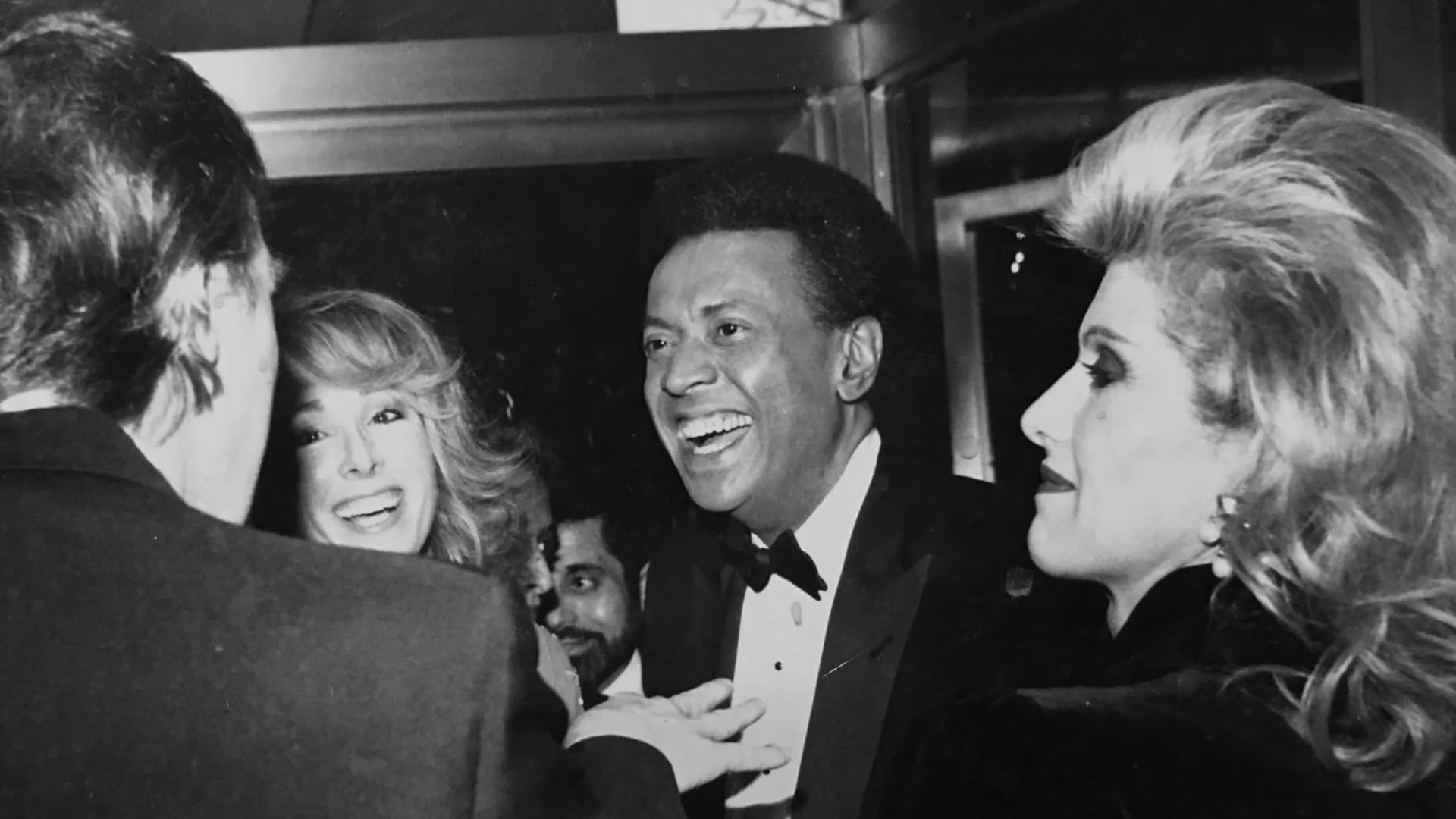The High Cost of the Spotlight
How Trump’s Own Cameras Keep Betraying Him
Fame is a tricky currency. It inflates egos, fuels ambition, and—if you’re not careful—documents every lie you’ve ever told. Donald Trump understood this early on. Long before reality TV or presidential campaigns, he paid the National Enquirer to publish salacious stories about his affairs. This wasn’t just about scandal—it was a calculated move to promote his name, his wealth, and his image to the masses.
From those early tabloid gambits to gold-plated elevator announcements, Trump has relentlessly built a persona fueled by spectacle. However, when your life is a performance, every slip, contradiction, and untruth becomes permanent record. For a man obsessed with image, this has become a haunting reality.
Chasing Fame, Forgetting Consequences
Donald Trump didn’t stumble into fame—he pursued it relentlessly. From The Apprentice to a presidential campaign launched amid golden elevators, Trump has built his persona on bold declarations and brash theatrics. Yet, he never seemed to grasp that cameras don’t just capture moments—they preserve history.
Fame isn’t free. It holds receipts.
Lie #1: “I Don’t Know Who She Is”
In 2023, a jury found Trump liable for sexually abusing E. Jean Carroll and defaming her afterward. Trump denied any relationship, claiming not to know her.
Photographic and testimonial evidence show Trump and Carroll socialized publicly for years. The inconsistencies in his statements severely damaged his defense.

Lie #2: “I Never Asked for Loyalty”
Then-FBI Director James Comey testified Trump asked for “loyalty” in 2017 before firing him. Trump denied this, but multiple accounts and the released testimony support Comey’s claim, fueling the Mueller investigation.
Lie #3: “The Election Was Stolen”
Trump claimed widespread voter fraud in 2020, but his Attorney General William Barr stated the DOJ found no evidence of fraud affecting the election outcome.
Additionally, transcripts and interviews reveal Trump privately admitted he lost the election.
Lie #4: “I Took the Pandemic Seriously”
Trump publicly downplayed COVID-19, but secretly admitted to Bob Woodward that the virus was dangerous and deadly.
The Epstein Files: The Ultimate Lie of Denial
Trump’s shifting stories about Jeffrey Epstein contradict decades of photos and flight logs showing their close association. Epstein’s “black book” and various investigations place Trump in Epstein’s circle multiple times.
Trump’s claims the “Epstein Files” are a hoax clash with an overwhelming body of evidence.
When Fame and Lies Collide, Cameras Become Prosecutors
Trump’s decades-long relationship with Epstein, documented extensively in photos and public records, stands as a monument to the perils of chasing fame without accountability. His repeated lies are desperate attempts to rewrite history under the unforgiving glare of media and public scrutiny.
Yet many older articles exposing these lies have vanished from mainstream platforms. This pattern reveals Trump’s influence over media channels, where controlling the narrative is as important as shaping it.
The cameras don’t lie—but if the footage disappears or the stories vanish, does the truth get a chance to live?
Final Thoughts: The Price of the Spotlight
There’s a high cost to fame lived in front of cameras: every lie, every misstep, and every denial remains on permanent display. For Trump, this cost is credibility, legacy, and trust.
The Epstein files are the culmination of a lifetime of carefully constructed falsehoods, exposed in vivid detail. In a world where cameras never stop rolling, the truth is both the most dangerous adversary—and the ultimate judge.
Closing Thoughts: When Media Control Silences Truth
Over the course of writing this editorial, I sought to back every claim with credible, publicly accessible sources. However, I repeatedly encountered broken links, missing pages, and 404 errors from major news outlets. These vanished articles are more than inconvenient—they reveal the immense power that Trump and his allies wield over media narratives.

By quietly erasing evidence, restricting access, and influencing platforms, they attempt to shield their stories from scrutiny. This makes uncovering truth harder, but not impossible. It also shows why it is critical to preserve and share verified facts widely before they disappear.
Below is a list of key articles and sources I initially tried to reference, now mostly unreachable, highlighting the ongoing battle between transparency and media control.
404 Errors: Not So Silent Censors
- https://www.washingtonpost.com/politics/2023/10/04/trump-e-jean-carroll-photo-deposition/
- https://www.npr.org/2017/05/11/527595272/trump-asked-fbi-director-james-comey-for-loyalty-sources-say
- https://www.politico.com/story/2017/05/11/trump-comey-loyalty-238440
- https://www.nbcnews.com/politics/justice-department/barr-says-no-evidence-widespread-voter-fraud-2020-election-n1259685
- https://www.cnn.com/2021/09/15/politics/jonathan-karl-trump-abc-interview/index.html
- https://www.washingtonpost.com/politics/2020/09/09/bob-woodward-trump-coronavirus/
- https://abcnews.go.com/US/times-trumps-appeared-epstein-files-doj-released/story?id=123848078
By sharing this list openly, I emphasize that the battle to hold powerful figures accountable often includes a fight over which facts remain visible—and which are erased. Despite these obstacles, the truth behind the lies remains, waiting for those willing to seek it out.
I hope you understand that this current President is a compulsive liar, who doesn’t take national security seriously. Just look at the reaction to “Signalgate”. It seems it’s all he knows how to do.
-Judy T.

